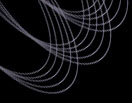
| SDSS Classic |
| SDSS.org |
| SDSS4.org |
| SDSS3.org |
| SDSS Data |
| DR19 |
| DR17 |
| DR10 |
| DR7 |
| Science |
| Press Releases |
| Education |
| Image Gallery |
| Legacy Survey |
| SEGUE |
| Supernova Survey |
| Collaboration |
| Publications |
| Contact Us |
| Search |

Policy on Continuing Participant Status After Departure from an SDSS Institution
According to the Principles of Operation (PoO) of the Sloan Digital Sky Survey, all Ph.D. level scientific staff of the participating departments of the ARC institutions are Participants (meaning that the core data, as defined in the PoO, is open to them). Similar arrangements, specified in the respective MOUs, identify Ph.D. scientists at the other institutions (Fermilab, JPG, Max-Planck, and USNO) who are Participants.
A fundamental principle of the Sloan Digital Sky Survey collaboration is that Participants who make significant contributions to the survey and leave the participating institutions will retain this status. The same general principle applies to individuals at all levels (i.e., tenured faculty as well as non-tenured scientists). Significant contributions include, but are not limited to, the following: software development, instrumentation, scientific contributions or leadership, and fund-raising. Generally, a significant contribution will have a value to the project that exceeds the equivalent of one year of full-time effort. In the case that contributions do not qualify for Participant status, the individual can apply for External Collaborator status on specific projects he or she is involved in, as described in Procedures for Early Collaborative Use of SDSS Data with Non-Participants.
It is especially important to ensure that a fair and equitable procedure exists to confer the retention of Participant status in the case of those non-tenured scientists who make significant contributions to the project, since they are more likely to leave a participating institution prior to the completion of the survey.
When a Participant is leaving a participating institution, the following procedure should be followed: If the Participant is a non-tenured scientist, the individual's faculty mentor, in consultation with the individual, will write a letter of support to the Chair of the Collaboration Council (CoCo) outlining the request for the retention of Participant status and its rationale, as well as outlining the individual's plans for future involvement in the SDSS. An additional outside letter (i.e. from a senior scientist at another SDSS institution) supporting the request should also be sent to the CoCo Chair. The CoCo Chair will forward the request to the Management Council (MC). The MC, with input from the CoCo as needed, will then determine whether Participant status will be retained. It is important that the faculty mentor meet with the individual on a regular basis (i.e. not just when departure is imminent) to keep the non-tenured scientist apprised of how his/her contributions to the SDSS are viewed and of prospects for the retention of Participant status upon departure.
In the case of a departing tenured faculty member, the individual should write directly to the CoCo Chair outlining the request and plans for future involvement in the SDSS. The CoCo Chair will then decide what additional material (if any) it requires in order to judge the contribution of the individual. Again, the decision will be made by the MC.
The decision about the 'portability' of Participant status will normally be made as an individual's departure approaches. An individual who has made a contribution with a value exceeding the equivalent of two years of full-time effort may request an early (pre-departure) decision. The process to be followed is identical to the above. If the MC does not grant such a request, the denial shall not prejudice future requests to retain Participant status.
Those who have made significant contributions to the survey which do not exceed the equivalent of one year of full-time effort may request provisional Participant status by the same procedures as above. If granted, the individual would have Participant status for two years from the date he or she leaves an SDSS institution. At the end of the two-year period, depending on the individual's continuing contributions to the survey, he or she may request a two-year extension or permanent Participant status, again following the procedures outlined above.
Graduate students who have made significant contributions to the SDSS, according to the criteria above, may also be granted Participant status upon their graduation. In these cases, the procedures outlined above for non-tenured scientists should be followed.